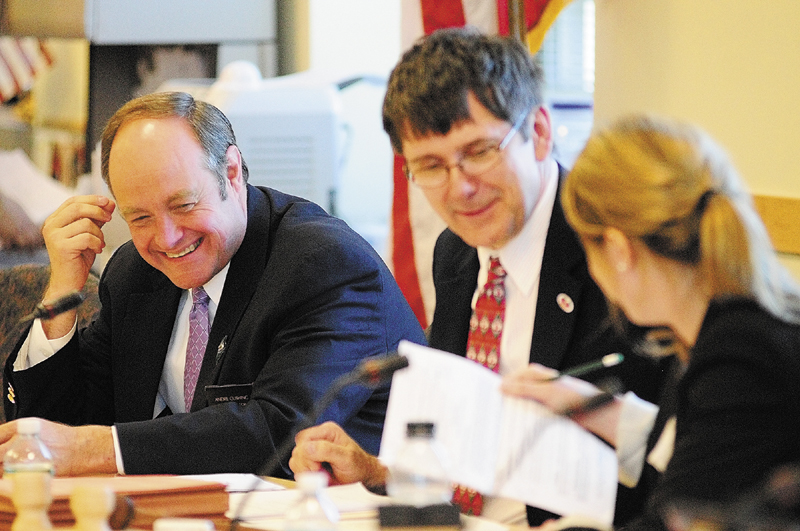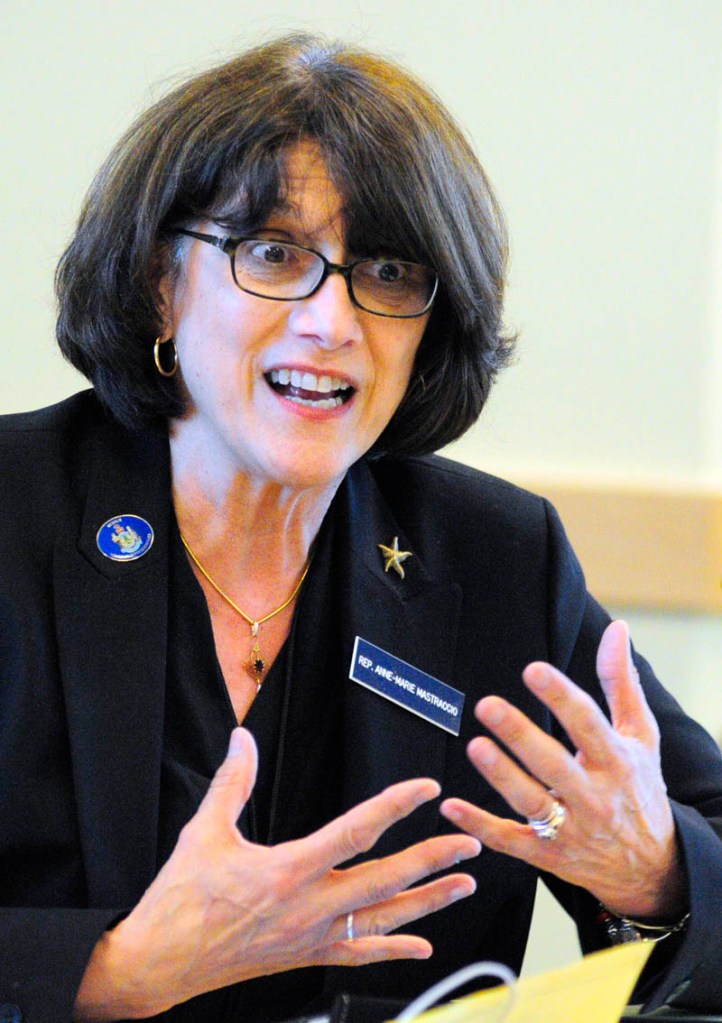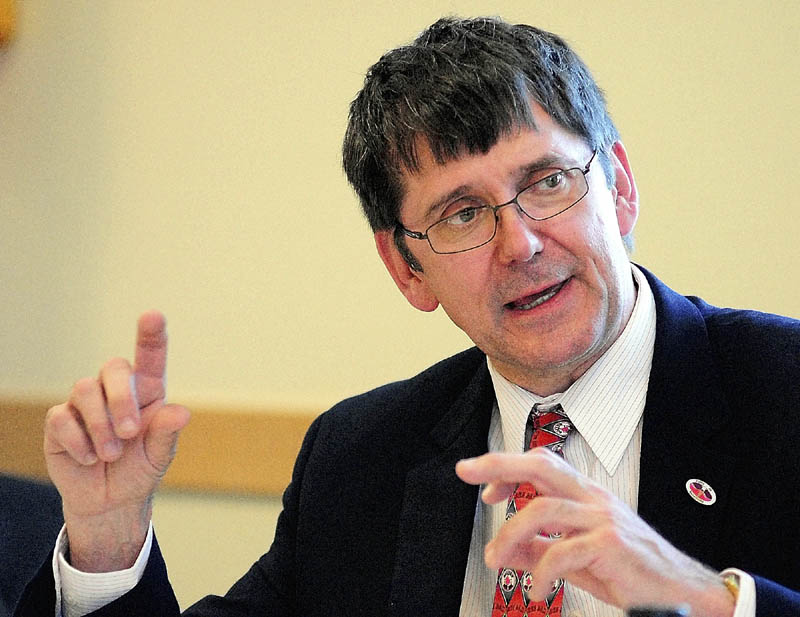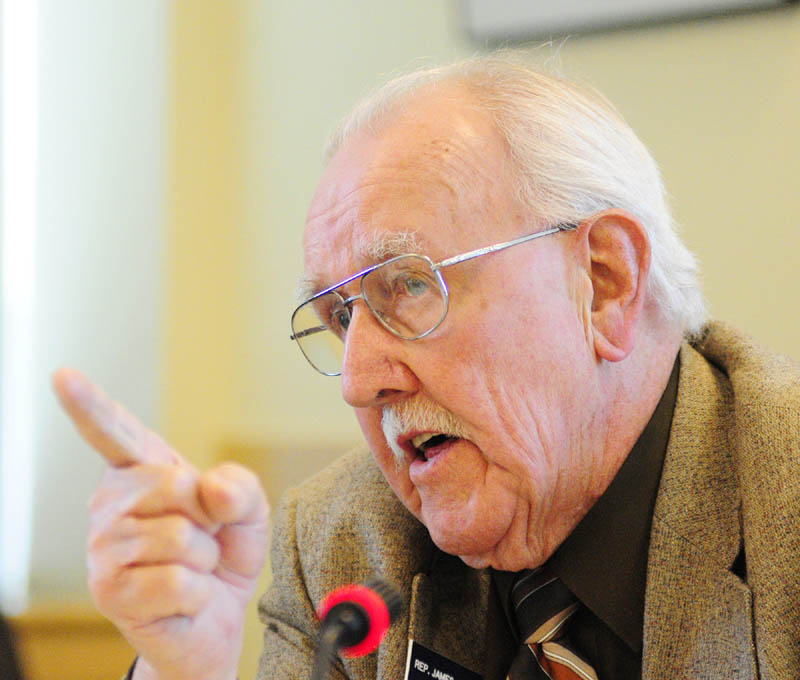AUGUSTA — A bill designed to help expand access to dental care deeply divided a legislative committee Friday, with supporters saying it’s time to help poor children in rural areas and opponents arguing that the bill was not the right solution.
Sen. John Patrick, D-Rumford, who’s served in the Legislature for more than 10 years, described the issue as one of the toughest he’s ever dealt with as a lawmaker.
The bill, L.D. 1230, would allow specially trained hygienists to perform expanded duties, some of which now are performed by dentists. The Labor, Commerce, Research and Economic Development Committee voted 6–5 in support of it Friday, but that total will change once two more legislators record their votes.
Dentists fought hard against the bill, calling it unnecessary and saying it gives too much responsibility to those with far less training.
Patrick said he would support an amended version of the bill, although he said he struggled with the decision.
“Do you think we should give the opportunity for hygienists to further their education, possibly at the expense of dentists?” he said.
Rep. Jim Campbell, an independent from Newfield, told Patrick the bill isn’t about dentists.
“You’re voting for poor children in rural areas that need your help,” he said.
House Speaker Mark Eves, D-North Berwick, sponsored the bill in an effort to improve access to dental health care for children, particularly those who live in rural areas. During a public hearing in April, he cited a study commissioned by the Legislature that found that while two-thirds of the state’s population lives in a rural area, only 13.5 percent of dentists practice in those areas.
He said more than 55 percent of children on MaineCare did not see a dentist in 2009 and in that same year, there were 11,960 separate dental-related MaineCare emergency room visits that cost a total of $6.6 million.
Through spokeswoman Jodi Quintero, Eves said Friday that he’s looking forward to advancing the bill in the House.
“This will move Maine people one step closer to getting oral health care in Maine,” he said.
As written, L.D. 1230 would have given dental hygiene therapists the power to pull teeth, administer anesthesia and prescribe anti-inflammatories and other drugs in consultation with a supervising dentist. However, the committee adopted an amendment that removes the ability to prescribe medications and allows extraction only of baby teeth or in instances of severe decay. It also increases training time from 500 to 1,000 hours.
Rep. Anne-Marie Mastraccio, D-Sanford, a former dental hygienist, said she was disappointed by what she called “total misinformation” distributed by dentists who oppose the bill. She read aloud parts of an email she received from a dentist in Piscataquis County who opposes the measure.
“People who have that position of power need to be honest about what they are really doing,” she said. “It comes from control and money.”
She said she’s comfortable that with additional training, dental hygienists would be able to step into the expanded role.
“This is about kids who are not getting the kind of treatment they need,” she said.
Sen. Andre Cushing, R-Hampden, said government often tries to adopt big solutions to health care problems, but it typically fails.
“We’ve spent trillions of dollars on the war on poverty and we’re still not winning,” he said. “We are authorizing people to do procedures that are, in some cases, irreversible procedures in the mouth.”
The committee discussion and close vote paves the way for heated House and Senate debate on the bill as the Legislature wraps up work for the year over the next month.
Rep. Erin Herbig, D-Belfast, who sponsored the amendment to the bill, said she voted against similar legislation last year but thinks this version of the bill will get more dental professionals out in rural areas where they can help more children.
“This is great for children in Maine, and it’s great for the elderly as well,” she said.
Susan Cover — 621-5643
scover@mainetoday.com
Send questions/comments to the editors.





